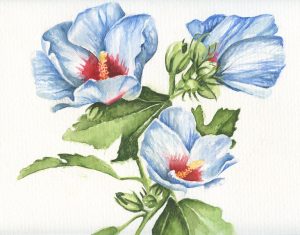
The Forest Opening
The ancient tradition
That acts without knowing,
Takes words as they are, seeing them
In experience. Like a plant
Observed to grow reveals
The stillness that its form
Imparts, the wind that moves it so
The empty sight of awareness.
You walk along a path
Between fallen and grown
And fallen again, while pine-trees
Letting go of their pollen fill
The air. Until you find
A place where it settles,
You never see it happening.
Douglas Thornton
Review by Massimo Fantuzzi
The forest opening, the ever-moving, ever-pulsing environment around us appears like a gala we haven’t been invited to, a banquet of which only the leftovers belong to us, once the guests have left.
In those “acts without knowing,” we see the cradle of real knowledge, a knowledge pivoting on its intimate connection with the natural world, on its working “in experience.” That deep knowledge has escaped us and left us with a shallow view of things we don’t really appreciate.
Referring to our incapability of capturing the moment with our own eyes, “sight” is pictured as the ultimate source of illusion disconnected from “awareness,” this know-it-all, this superficial attitude, with no actual first-hand experience to back it up. True presence, true intention and awareness don’t need sight, and sight is no guarantee of presence nor awareness.
Our limitation is that we “never see it happening”: our instruments inform us well of the results, with ever-growing precision we measure, we approach, we stipulate, but to feel is a different thing altogether.
What I find exciting in this issue is the emerging of a recurrent and unsolicited theme. Being out of step with the natural world and its mechanics, out of step with ourselves and our own purpose and, like in this case, on shaky grounds for a lost use/perception of a grammar fading out of our grasp.
Nothing new in our grappling with the understanding of the origins, limits and ramification of our experience. In recent times, however, our search has taken on a different aspect. The matter is pressing, raw, almost too close to playing word games and posturing over it.
For what it matters, I’ll say, we are on the right page: poetic language can cut through the red tape between mind and soul while poetic intuition can see through the mist of panic and frustration—that mix of fear, anger and helplessness—better than any other language/counselling.
Review by Jared Pearce
The paradox of stillness and movement is lots of fun here, and I think the plant metaphor is perfect. I’m also really drawn to the first four lines—that idea of language, tradition, words, that is, on the one hand, old and experienced. However, the pun in line four, “In experience,” also leads us to see that as we participate in the words, traditions, and language, that there’s a lack of experience, and inexperience, a newness, that will encourage growth and movement amidst the stillness of tradition. I guess what struck me there was how the two image sets of plants and words were pulling so nicely in the same way, helping me think of the natural and the man-made worlds simultaneously.
